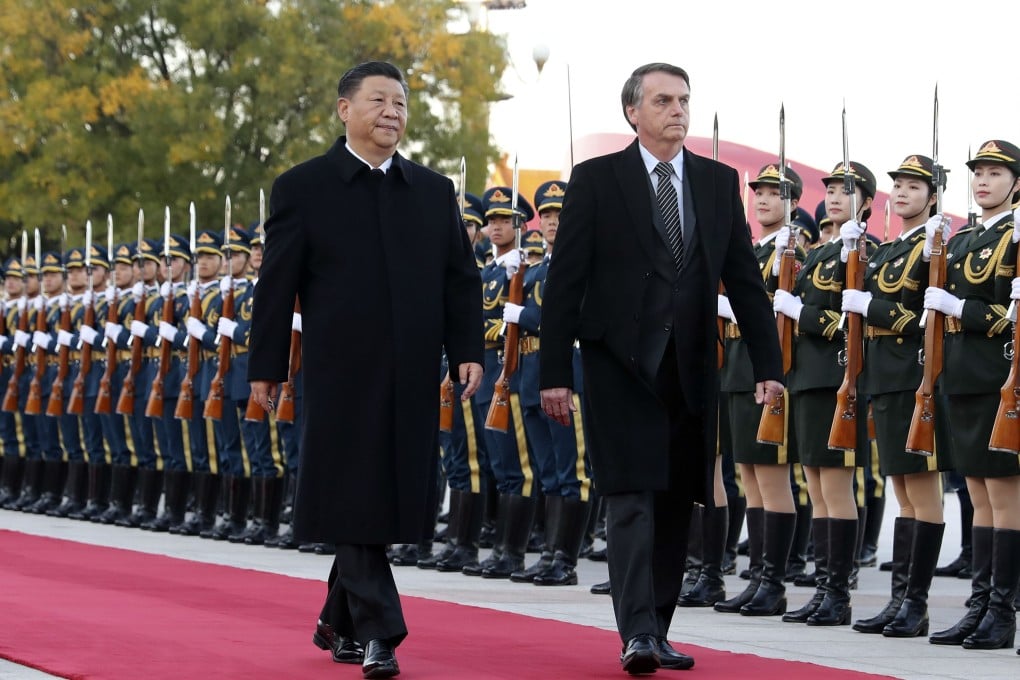Common ground on investment but still no hint of Brazil signing up for China’s Belt and Road Initiative
- Brazilian president says two countries ‘born to walk together’ but offers no commitment to Beijing’s big infrastructure plan

Brazilian President Jair Bolsonaro met his Chinese counterpart Xi Jinping in Beijing on Friday, with both sides promising to improve bilateral investment but no commitment from Brazil to sign up to China’s Belt and Road Initiative.
Xi told Bolsonaro that China and Brazil should continue to support mutual development, give priority to the development of diplomatic relations and advance their “comprehensive strategic partnership”, state news agency Xinhua reported.
“This is our strategic decision and long-term choice. It will withstand the test of major global change, and will not be shaken or affected by external influences,” Xi was quoted as saying.
According to Xinhua, the two leaders acknowledged that the Belt and Road Initiative “may be linked” to Brazil’s own development initiatives. But Brazil did not make a clear commitment to sign up to China’s ambitious infrastructure and connectivity plan.
China has heavily promoted its trillion-dollar plan as a mutually beneficial deal to its various partners, but it has also drawn sharp criticism from countries like the United States that it is a “debt trap” for developing countries involved.